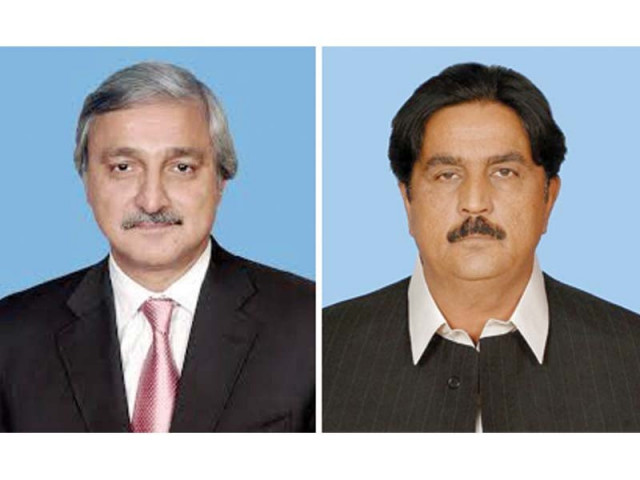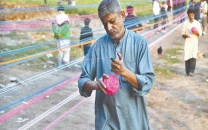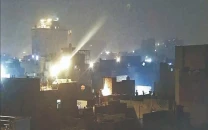‘Affirmative evidence’: Surmises should not be basis for disqualification: SC
In detailed verdict on NA-154, top court directs ECP to prosecute negligent election staff

Jahangir Tareen, Siddique Baloch. PHOTO: FILE
The Supreme Court has ruled that ‘affirmative evidence’ and not inferences and surmises should be the basis for disqualifying a winning candidate in an election.
This was stated in Supreme Court’s detailed judgment on a petition of Pakistan Muslim League-Nawaz (PML-N) lawmaker Siddique Khan Baloch.
An election tribunal had disqualified Baloch for life on August 26 for holding a bogus degree on the plea of Pakistan Tehreek-e-Insaf (PTI) General Secretary Jahangir Khan Tareen. The tribunal had also ordered re-election at his constituency, NA-154 (Lodhran-1).
Later, Baloch approached the apex court, which on October 28 allowed him to take part in by-polls while maintaining the tribunal’s verdict regarding re-election.
Authored by Justice Umar Ata Bandial, the 26-page detailed verdict emphasised that in cases involving fact-finding about the disqualification of a returned (winning) candidate, verdicts must be based on affirmative evidence.
“That does not mean that proceedings in an election petition before an election tribunal are strictly criminal proceedings. It is a settled law that even in civil proceedings, finding of facts must be based on positive and affirmative evidence,” it said.
“This requirement rests on the basic principles of the Qanun-e-Shahadat Order 1984,” it added
The order said the malice of the election staff in the conduct of election at NA-154 and the object and motivation for wrong doing cannot be overlooked or condoned.
“The ECP [Election Commission of Pakistan] is therefore directed to inquire into the cause and purpose, if any, of such errant conduct by the election staff and to prosecute the responsible persons for breaches of their duties, inter alia, committed under Section 91 of the ROPA,” the judgment said.
Regarding the charge for making a false declaration in his nomination papers about his graduation qualification from the University of Balochistan (UoB), the order said the state of evidence on record about the falsity of the appellant’s educational qualification is cursory, defused and inferential.
“No witness of the UoB was examined by the election petitioner. Likewise, no witness of Board of Intermediate and Secondary Education, Karachi (BISE) ...was examined by election petitioner,” it said.
“There is no report on record either by the UoB or the BISE, Karachi disputing, disowning or rejecting diplomas/ certificates conferred by the said institutions upon the appellant,” It added.
Published in The Express Tribune, December 14th, 2015.



















COMMENTS
Comments are moderated and generally will be posted if they are on-topic and not abusive.
For more information, please see our Comments FAQ